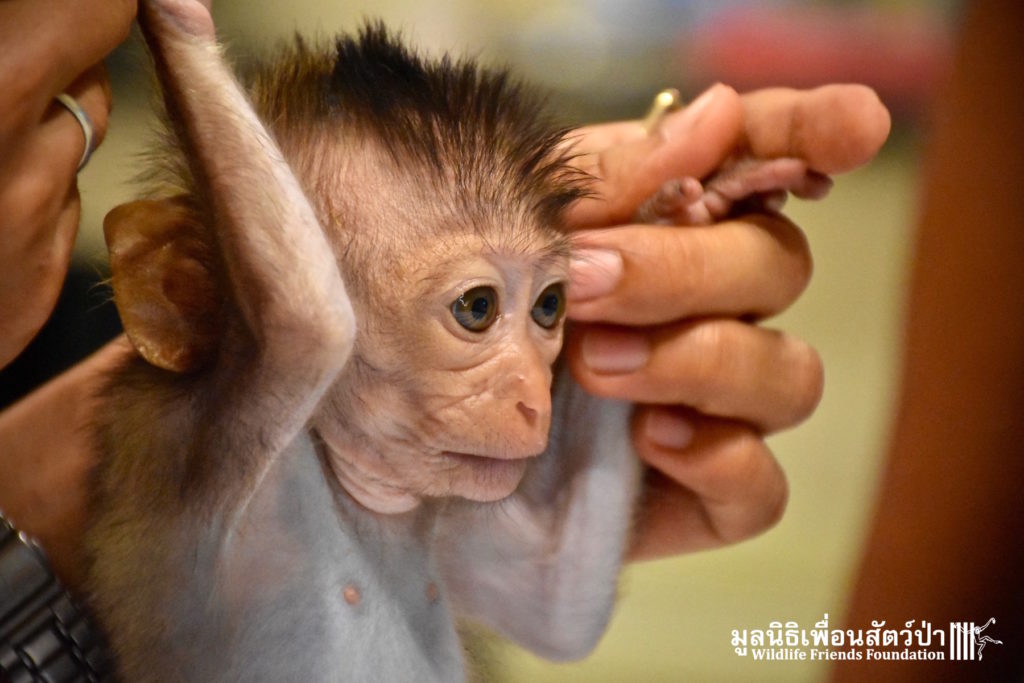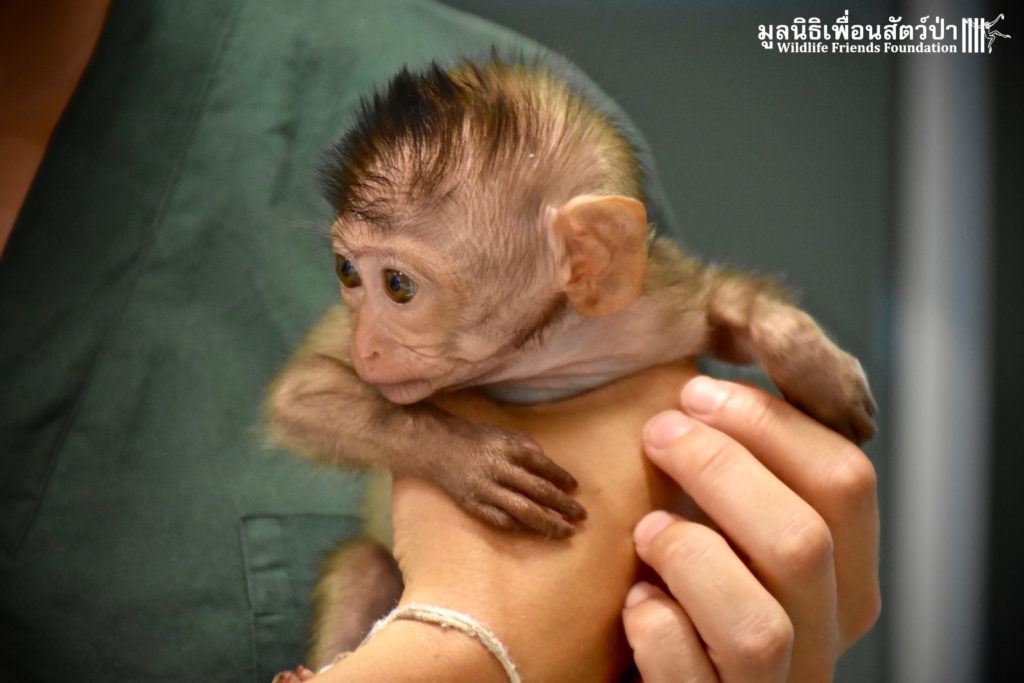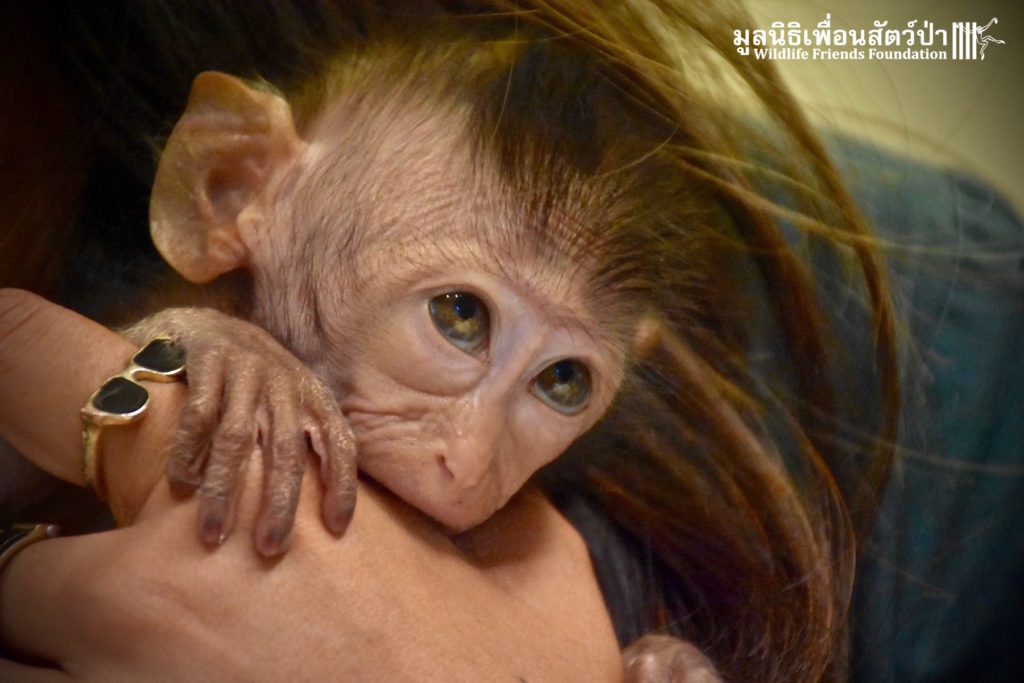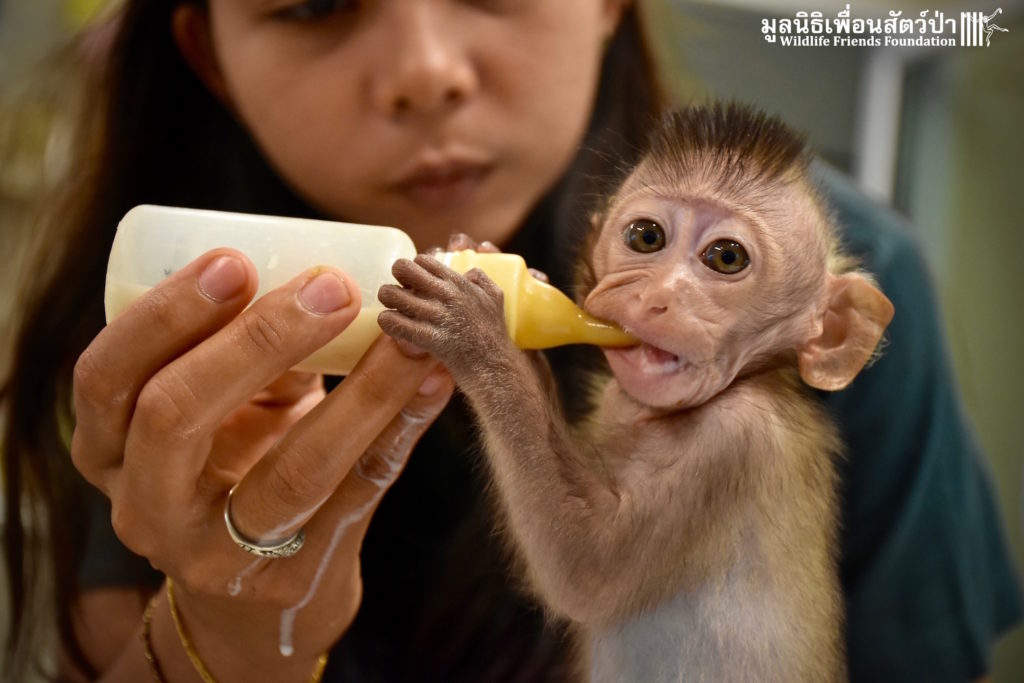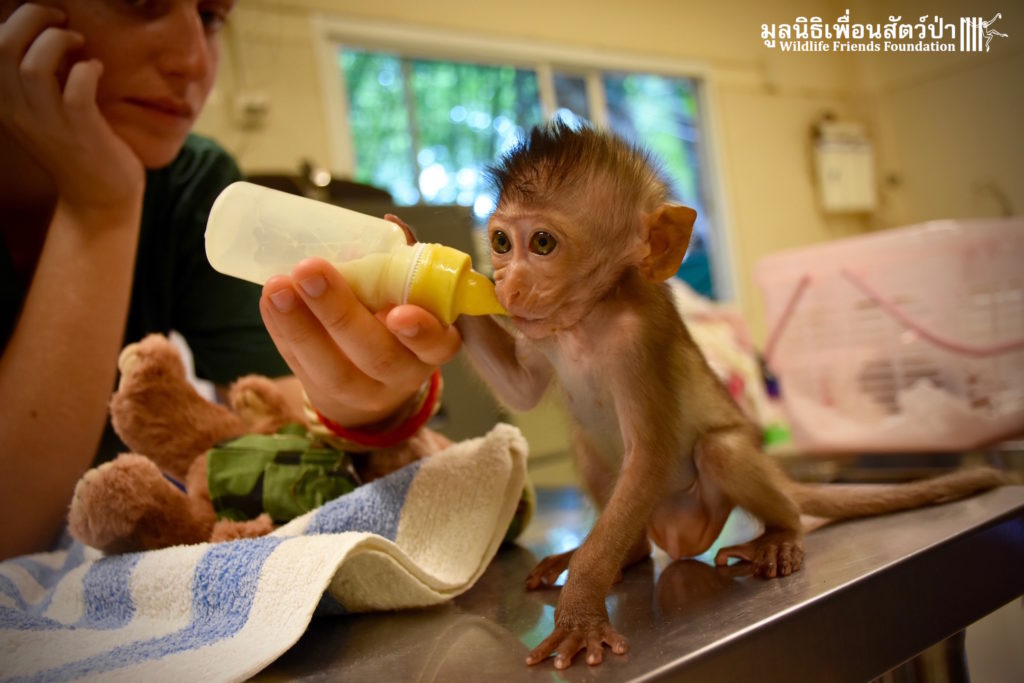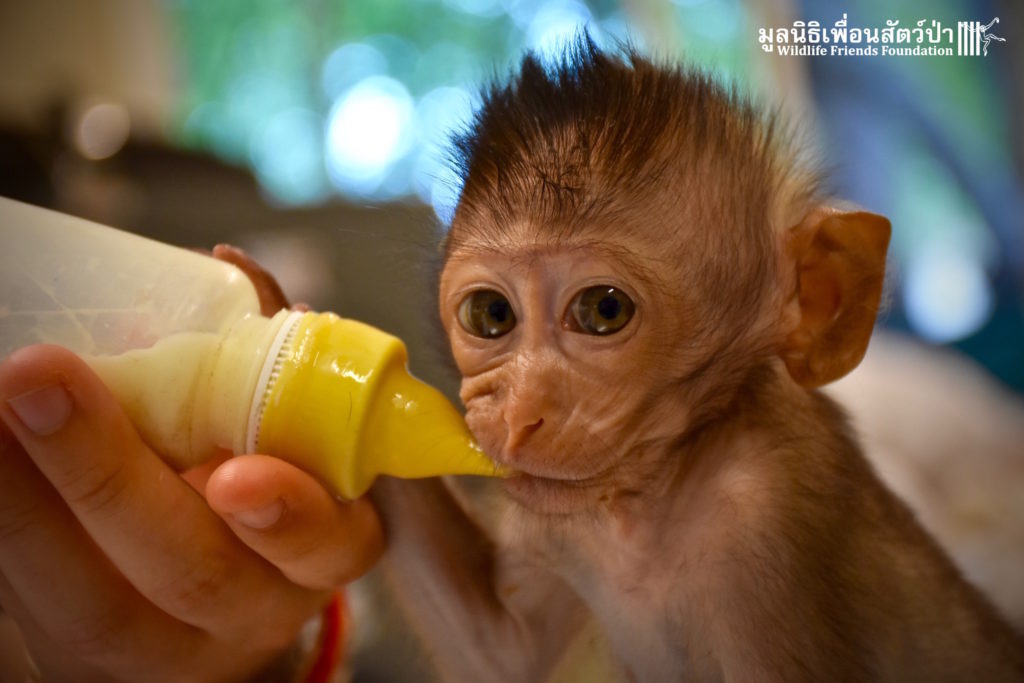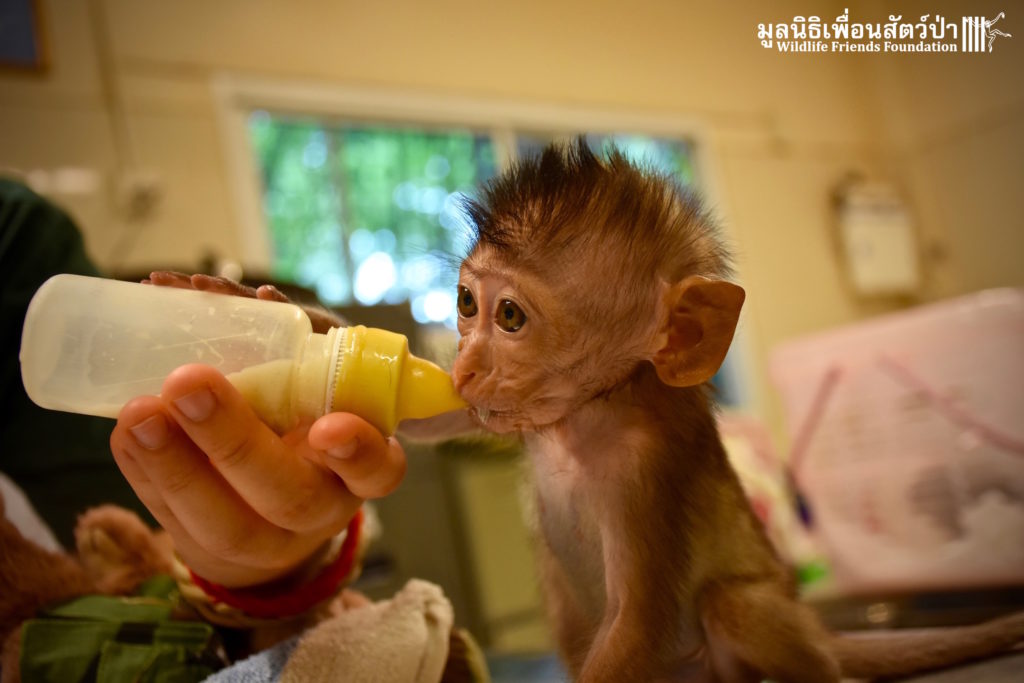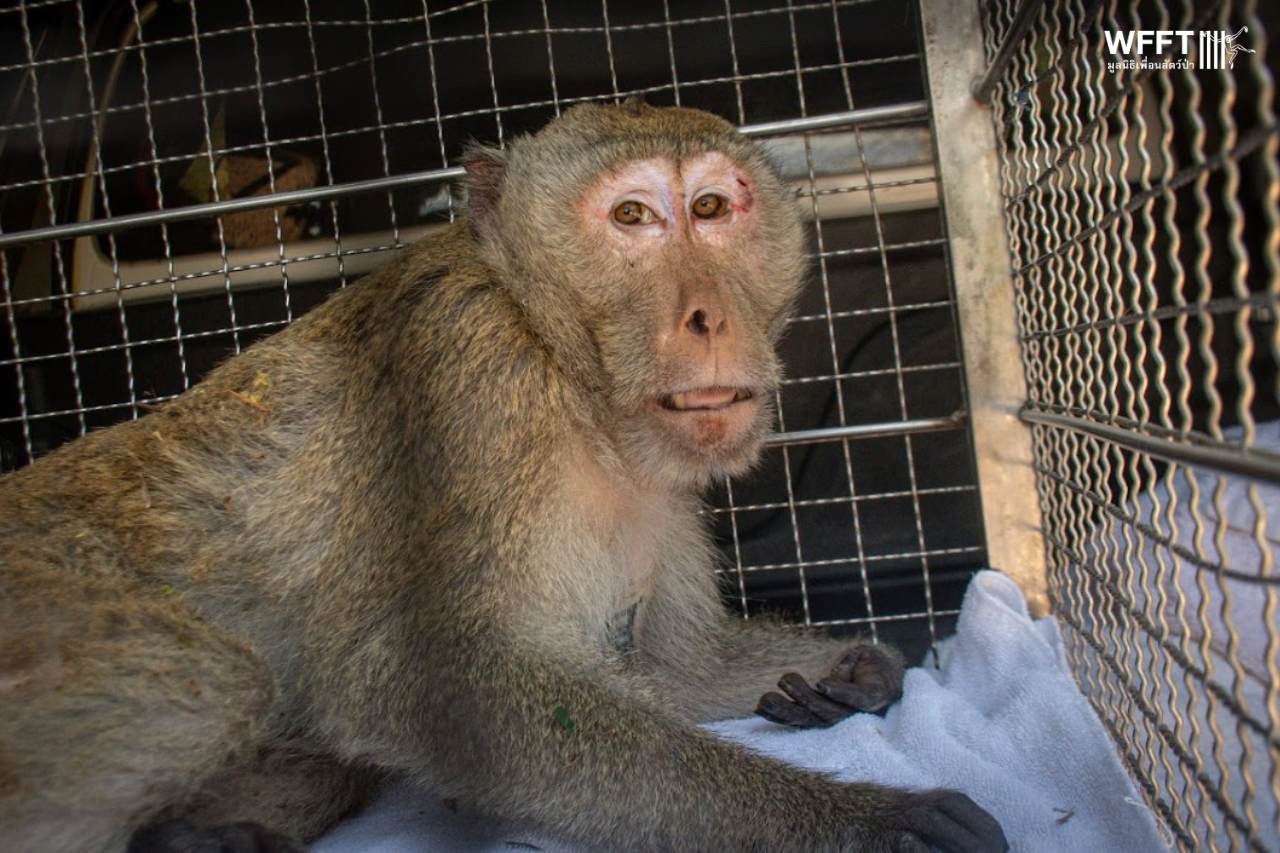It's time to take action—learn how you can help stop this exploitation and protect slow lorises from further harm.
Infant Male Long-tailed Macaque Rescued
A few days ago we received a call about a very young infant long-tailed macaque (Macaca fascicularis) that had been found after being abandoned by his mother. He was found one month prior to being brought into the WFFT Wildlife Rescue Centre and given the name ‘Phubai’. A de-sexing program to control the macaque population had recently been conducted in the area in which he came from, with the aim of helping alleviate human-macaque conflict in the area. Whole troops of macaques were caught in enclosures, the males were de-sexed and then all the macaques were released back to the wild. This can be a stressful time for the macaques, it seems that this little guy was left behind by his mother.
The long-tailed macaque is listed as Least Concern (LC) by the IUCN Red list of Threatened Species, in view of its wide distribution, presumed large population, tolerance of a broad range of habitats, occurrence in a number of protected areas. Females are often taken into breeding facilities and males are exported internationally primarily for use in laboratory research. Habitat loss and degradation due to human encroachment, pose the biggest threat to all macaque species. They are regularly persecuted as pests. Increasing competition between macaques and humans due the increase in need of land for agriculture and other human activities is the foremost reason that macaques are persecuted as pests. Hostile encounters with macaques are common in urban areas due to the active promotion of their presence for spiritual and entertainment purposes by provisioning food for the macaques. We (humans) both promote population growth through the provision of food and the protection habitat, and on the other hand we hinder it through the continued fragmentation of habitat, capture and exportation for research, and the pet-trade.
As little Phubai is only around 8 weeks old he will require round the clock care from the WFFT Team. Luckily we have another infant long-tailed macaque, Makood, who can keep this little guy company. We will keep you updated on his progress.
Note: WFFT agrees with the mass de-sexing of macaques in areas where they are deemed as ‘overpopulated’. However, this must be researched, planned and conducted properly, with the welfare of the animals a top priority.

